Economic

Sri Lanka’s external sector recovers in July
Sri Lanka’s external sector recovered further in July 2020 supported by an increase in merchandise exports and increased workers’ remittances amidst reduced merchandise imports, the Central Bank announced
Several notable achievements were observed in spite of the COVID-19 pandemic. Earnings from merchandise exports surpassed US dollars 1 billion in July for the first time since January 2020 and recorded a positive year-on-year growth for the first time since February 2020.
As expected, merchandise imports remained subdued with the continuation of restrictions imposed on the importation of non essential goods.
A substantial increase was observed in workers’ remittances in July 2020, recording the highest amount of monthly remittances since January 2018.
Meanwhile, the level of gross official reserves of the country increased to US$ 7.1 billion by the end of July 2020, which was sufficient to cover 4.8 months of imports with the receipt of the US$ 400 million SAARC finance swap facility from the Reserve Bank of India.
Total foreign assets, which consist of gross official reserves and foreign assets of the banking sector, amounted to US$ 10 billion in July 2020, providing an import cover of 6.8 months
Net inflows to the domestic foreign exchange market eased the pressure on the exchange rate and enabled the Central Bank to absorb foreign exchange on a net basis to build up gross official reserves.
Foreign outflows from the government securities market and the Colombo Stock Exchange (CSE) continued during the month, though at relatively low levels. The Sri Lankan rupee recorded a marginal appreciation during the month of July 2020. The deficit in the trade account narrowed by US$ 509 million in July 2020 to US$ 209 million, from US$ 717 million in July 2019, as exports increased while imports recorded a decline.
On a cumulative basis, the trade deficit narrowed by US$ 844 million to USD 3,470 million during the period January-July 2020 from US$ 4,314 million in the corresponding period of 2019.
Meanwhile, terms of trade, i.e., the ratio of the price of exports to the price of imports, declined by 4.1 per cent (year on year) in July 2020 as export prices declined at a faster pace than the decline in import prices.
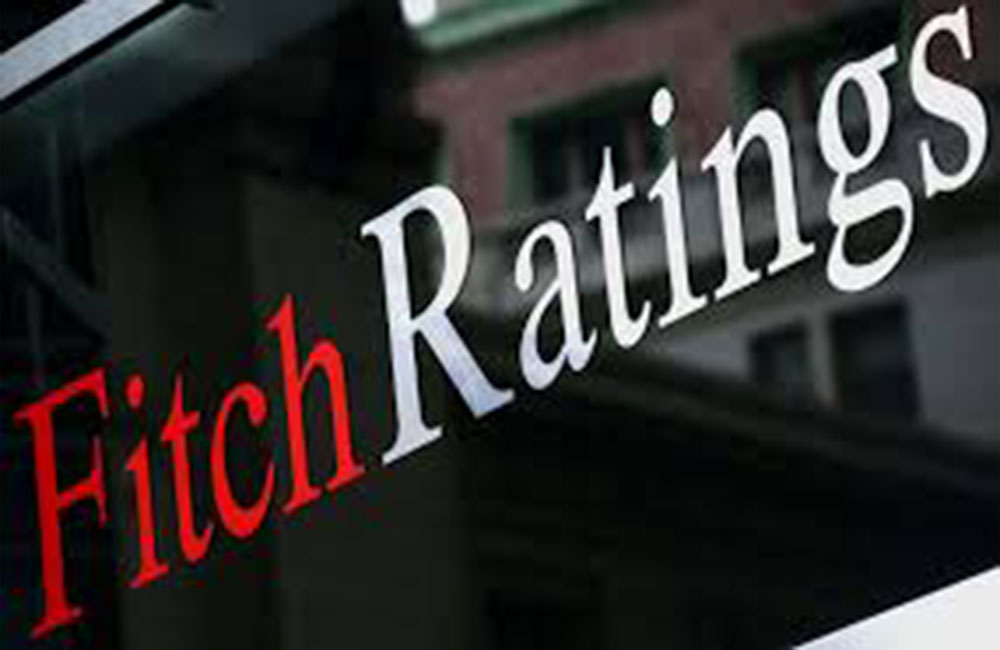
Fitch downgrades operating environment for Sri Lankan banks
The Outlook on Sri Lanka's Long-Term iDR is Negative, as is the outlook on the OE score. The change in the OE score followed a revision in the outlook on the score to negative from stable in January 2020, which came on the heels of a revision in the Outlook on Sri Lanka’s ‘B’ sovereign rating to Negative from Stable in December 2019.
These actions show that the OE score for banks is usually constrained by the sovereign rating. The OE score change also reflects Fitch's assessment that the risk of doing business in Sri Lanka could rise in the medium term.
The current OE assessment factors in the pressure arising from the coronavirus pandemic and the possibility of further risk if the pandemic worsens or lingers. The assigned OE score is consistent with the implied score for Sri Lankan banks, which is at the lower end of the ‘b’ range.
Fitch also considers qualitative aspects when assigning the OE score, such as the sovereign rating, macroeconomic stability, size and structure of the economy, economic performance, the level and growth of credit, financial market development, regulatory and legal framework and international operations.
Fitch’s Macro Prudential Risk Indicator (MPI) of 2 for Sri Lanka indicates that there is moderate vulnerability to potential stress in the banking system and the broader economy.

Sri Lanka caught in a Rs. 3 trillion debt trap
Sri Lanka is in a catch-22 situation of tackling massive public debt restructuring in the next three months with an unprecedented debt load of Rs.3.05 trillion for 2020, surpassing the earlier estimate of Rs. 2 trillion, official data showed. In light of urgent and unforeseen requirements arising from the COVID-19 pandemic, the increase in debt stock to over Rs.3 trillion compared to Rs.1.3 trillion in 2019 is unavoidable, a senior Treasury official said.
With about half that amount of debt made up of foreign repayments, the Finance Ministry is working out plans to meet payments and raise money attracting foreign inflows for rupee bonds with forex caps without relying much on international sovereign bonds, he added.
In addition, Central Bank holdings of government securities and other data on Central Bank open market operations revealed a significant direct monetary financing of the deficit. This will add to the sum of government borrowings.
Sri Lanka will under no circumstances dishonor debt obligations, he said, stating that debt servicing will be possible even under a difficult financial situation.
The government has moved and passed a resolution in parliament to raise the borrowing limit to Rs.1.3 trillion on August 27 and another sum of Rs.75 billion the following day raising the borrowing limit to an additional sum of Rs. 2.05 trillion this year.
Sri Lanka’s dollar bonds have not performed up to expectations with a weak position among the sovereign frontier markets in Asia that have been able to raise offshore debt, he disclosed.
Foreign reserves amounted to US$ 6.9 billion in August 2020, compared with US$ 6.6 billion in the previous month.
The current foreign reserve level is low relative to sovereign external debt that is due by the end of this year, an economic expert said pointing out that servicing foreign borrowings will not be an easy task.
External debt service amounts to around US$ 3.8 billion from June to December 2020, including a US$ 1 billion international sovereign bond payment due in October.
The government will be facing difficulties in securing foreign funds under the present global financing conditions amidst COVID-19, the expert said.
However, the Central Bank is optimistic about raising US$ 1.5 billion each from India and China in the form of currency swap lines and a US$ 300 million loan from the ADB.
If the country will be able to secure 100 percent bilateral and multilateral financing under negotiation (including the US$ 800 million rapid financing instrument from the IMF), the foreign reserve position will rise up to US$ 7.8 billion, they predicted.
But if the Central Bank fails to secure foreign financing, then the reserves will fall to US$ 3.7 billion and the government will find it difficult to avoid default, he said.
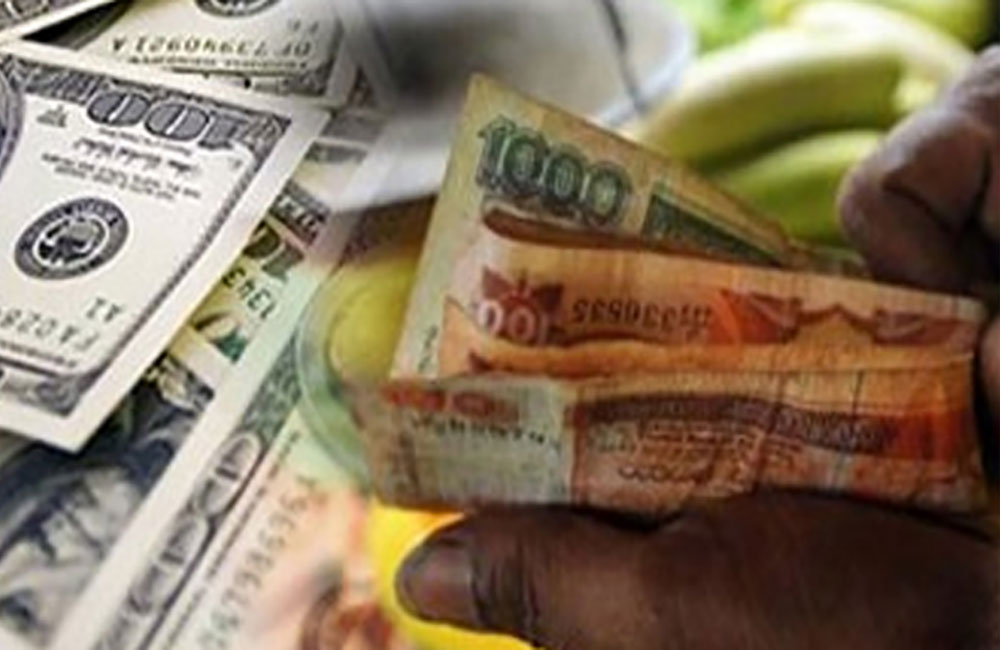
Sri Lanka restricts capital outflows to preserve forex reserves
Sri Lanka will restrict outward remittances to preserve its foreign currency reserves position due to the potential negative impact on the economy from the coronavirus pandemic.
Permission to remit funds for overseas investments by Sri Lankan residents will be suspended for six months from July 2, except under certain conditions, the Central Bank of Sri Lanka said in a statement.
The changes to the regulations were decided by the finance ministry in consultation with the central bank.
Sri Lanka’s external debt payments between now and December amount to $3.2 billion. Other costs could bring that up to $6.5 billion in the next 12 months, Morgan Stanley estimates, and with FX reserves of just $7.2 billion, it has described the situation as a ‘tightrope walk’.
Earlier this month, the central bank eased monetary policy for the fourth time since March as it ramped up efforts to support the economy and to encourage banks to “aggressively enhance lending” amid subdued inflation.
The central bank has taken several measures alongside the government to stabilise an economy that is heavily dependant on tourism for its revenues.
The central bank said it was limiting migration allowance for emigrants up to a maximum of $30,000 for first time applicants and at $20,000 for those who have claimed the allowance in the past.
It also laid down strict conditions for any business purpose investments and repatriation.
“The above restrictions are only applicable to the identified capital transactions and do not impose any restrictions on already permitted current transactions,” the central bank said. (Reuters)

Concessional loans less favourable to Sri Lanka than borrowing from international markets: Verité
The Sri Lankan government has been misled by some international lending agencies and donor countries in granting concessional loans for development projects and services. A recent study published by an independent think tank, Verité Research, sheds light on this financial discrepancy.
Multilateral and bilateral borrowing is often favoured by governments such as Sri Lanka because such financing tends to have ‘concessional’ elements, relative to the international financial markets. However, the study done by Verité Research reveals that the extent of concessionality is being overestimated, and that in some cases, loans that are deemed concessional can be less favourable than borrowing on international financial markets.
The findings of the study were presented by Dr. Nishan de Mel (Executive Director) and Ms. Subhashini Abeysinghe (Research Director) at a webinar hosted by Verité Research on 10 September 2020.
The study showed that the erosion of concessionality arises from the widely accepted practice of ‘tying’ loans to sources of procurement preferred by the lender.
A loan is tied when a certain portion of the loan is restricted to the procurement of goods and services from contractors connected to the lender.
This limits the recipient country’s ability to secure the best value for money through a process of competitive bidding. Therefore, projects funded by tied loans can have significant escalations in costs.
The cost escalation on the tied component has the consequence reversing the concessionality or grant element of the loan.
The study by Verité Research provides a measurement of the initial concessionality of major infrastructure loans taken by Sri Lanka between 2005-2018, by source of the loan.
28 out of 35 evaluated bilateral loans to Sri Lanka between 2005 – 2018 were tied loans worth USD 9.2 billion.
All evaluated loans from China (18) and India (3) were tied, and 6 of the 13 evaluated loans from Japan were also tied.
The study also measured and evaluated the extent to which each loan is vulnerable to being non concessional due to the tied component of the loan. The study concluded that 18 of the tied loans would be non-concessional with a cost escalation of 50% on the tied element. 4 of these loans were vulnerable to becoming non-concessional with a cost-escalation of 15% on the tied element.
The vulnerability of loans to being non-concessional can vary significantly and can depend on the country from which the loan is secured.
The study suggested that for Sri Lanka, the risk of cost escalation is likely to be higher for projects funded by tied loans that originated as unsolicited proposals. In Sri Lanka’s case, 13 of the 28 projects funded by tied loans originated as unsolicited proposals.

Govt. approves Rs. 60 billion in loans for COVID hit businesses
The licensed banks had already disbursed Rs. 30,528 million among 13,333 borrowers island- wide as of 9th July 2020, CBSL announced.
The CBSL, in consultation with the Government, introduced the Saubagya COVID-19 Renaissance Loan Scheme to provide working capital loans at 4 per cent (p.a.) interest rate to businesses adversely affected by the COVID-19 outbreak, through Licensed Banks, thereby supporting the revival of economic activity in the country.
This Loan Scheme is available for COVID-19 affected businesses with an annual turnover below Rs. 1 billion, including self-employment and individuals.
The Rs. 1 billion limit of annual turnover will not be applicable to businesses engaged in tourism, exports and related logistical supplies.
COVID-19 affected businesses and individuals can submit their loan applications under the above Loan Scheme to respective banks until 31st August 2020, CBSL said.
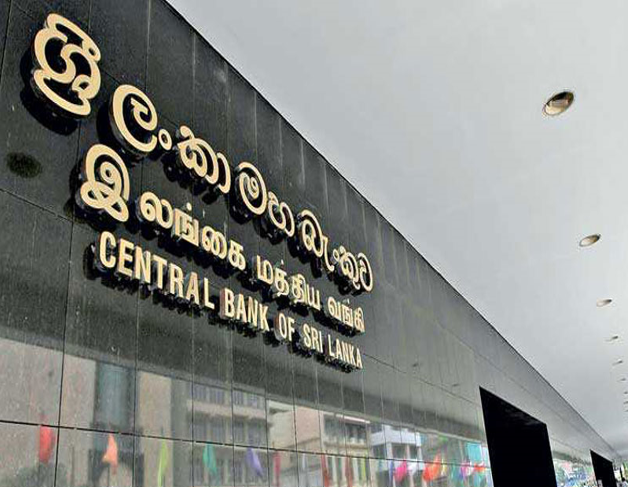
SimCorp Singapore to handle CBSL's data management system
Sri Lanka Central Bank’s foreign reserve and future development administration will be handled with the use of a new data management system soon, official sources said.
Cabinet approval has been granted recently to procure this new system to meet the existing requirements in the management of the country's foreign reserves as well as to facilitate future developments.
Accordingly, bids have been invited on an internationally competitive basis to provide, install, operate, and maintain the data management system.
The contract has been awarded to SimCorp Singapore Pte Ltd considering the recommendation of the Standing Procurement Committee appointed by the Cabinet of Ministers and the views and recommendations of the Information and Communication Technology Agency of Sri Lanka (ICTA).
The proposal presented by the Prime Minister and Finance Minister Mahinda Rajapksa was approved by the Cabinet of Ministers.
The CBSL in its endeavour to meet the challenges of managing its reserves in complex financial markets has embarked on a modernisation programme where state of the art technology of electronic records, analysing, monitoring and reporting of reserve management activities will be introduced to enhance the return of the reserve portfolio.
Further, it is intended to move into a broad array of asset classes, further expansion of geographical coverage of markets and extension of dealing hours to cover the global financial markets in different time zones.
However, challenges still lie ahead since it is required to maintain the safety and liquidity of investments without hampering the country’s reputation while attempting to earn a higher rate of return on the reserves in order to maintain and preserve the value of reserves., CB said.
Accumulation of reserves in the recent past occurred mainly on account of purchases of Dollars in the local foreign exchange market.
Continuous inflow of funds to the government securities due to increased investor confidence also made a significant contribution.
Furthermore, remittances from Sri Lankan Diaspora, migrant worker remittances, Stand-By Arrangement Facility received from the International Monetary Fund (IMF) and proceeds from the sovereign bond issues and foreign loans and grants were the other significant contributors to the enhanced reserves.
The major outflows that decreased the reserves were debt service payments and repayment of foreign borrowings and foreign exchange sales to the domestic market to meet demand for import of goods and services.
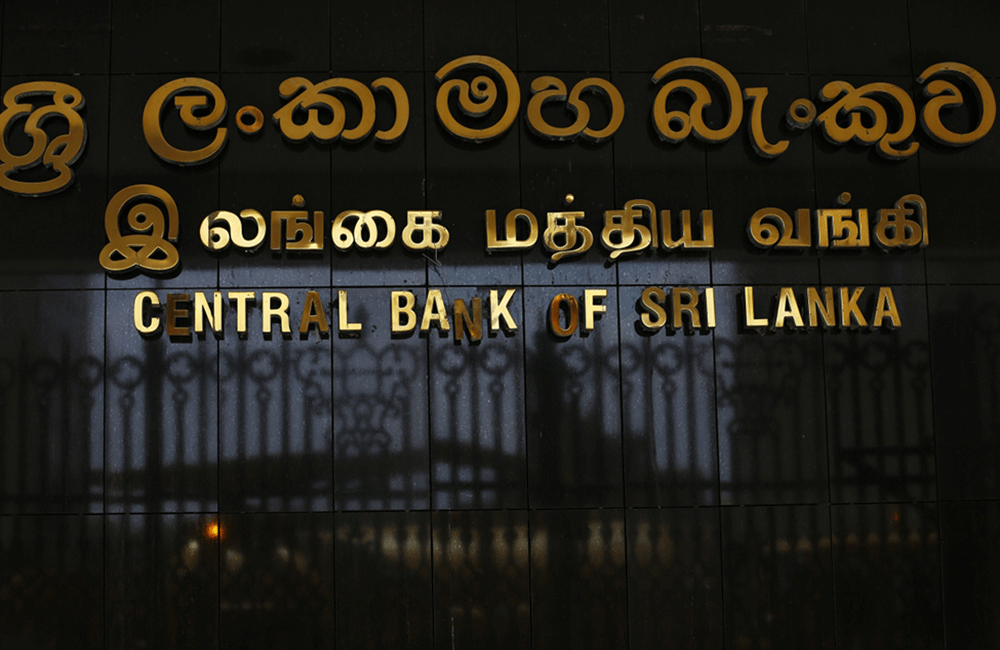
CBSL implements credit guarantee to accelerate lending
"This scheme, which will be launched on 01 July 2020, will operate in parallel with the Saubagya COVID-19 Renaissance Facility and the new Facility approved by the Monetary Board under Section 83 of the Monetary Law Act, within the already announced threshold of Rs. 150 billion," the Central Bank said.
Under this Scheme, the Central Bank will provide a credit guarantee to banks, ranging from 80 per cent for smaller loans to 50 per cent for relatively large loans, enabling banks to grant loans to address working capital requirements of the affected businesses.
With the Central Bank absorbing a significantly higher percentage of the credit risk, banks can extend their lending to vulnerable businesses focusing on the viability and cash flows of such businesses rather than collateral.
Banks are expected to use their own funds, particularly the additional liquidity of close to Rs. 180 billion provided by the Central Bank through the cumulative reduction in the Statutory Reserve Ratio (SRR) of 300 basis points thus far during the pandemic period, to grant loans at 4 per cent to businesses. The Central Bank will provide an interest subsidy of 5 per cent to cover the cost of funds of banks.
CBSL said that operating instructions on this scheme will be issued to banks in immediate due course.
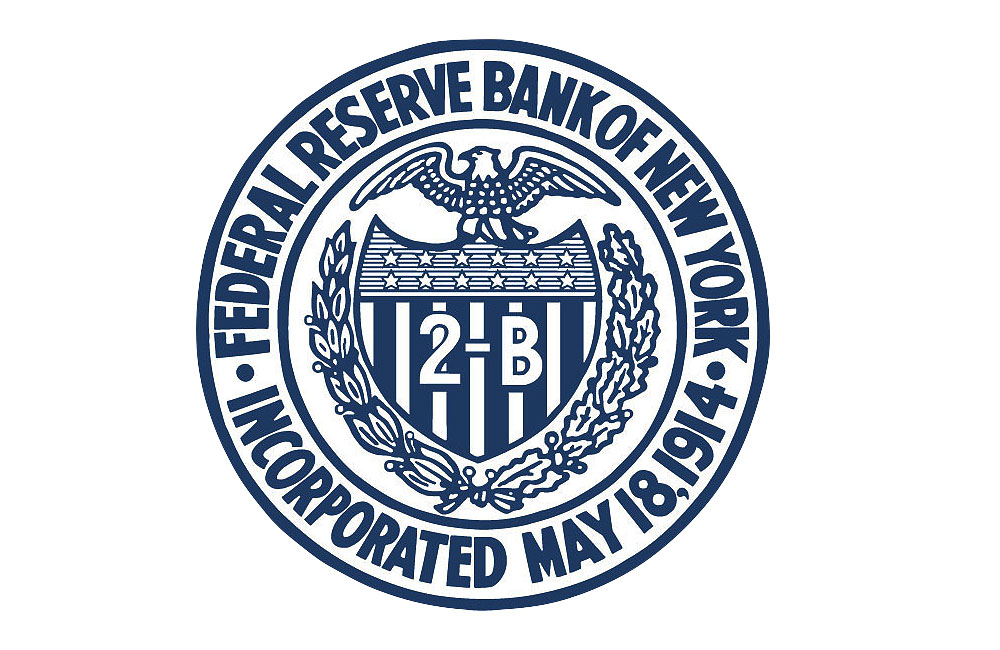
CBSL clarifies its Repurchase Agreement with Federal Reserve Bank
As part of the contingency plans to meet COVID-19 related difficulties, the CBSL has decided to pledge a sum of USD 1 billion worth of US Treasury Bonds held in the CBSL reserve and enter into the above type of Repo facility with the FED. This would permit the CBSL to raise USD 1 billion in cash form when required.
The CBSL has entered into this agreement with the FED, but no borrowings have yet been made. Withdrawing from the facility at any point is at the discretion of the CBSL.
The statement found widely in media that the CBSL is pledging USD 4.5 billion worth of US Treasury Securities to obtain a credit facility of USD 1 billion is totally false. The CBSL wishes to reiterate that this facility is not extraordinary by any measure and constitutes an independent financial instrument available for use when required by central banks around the world.
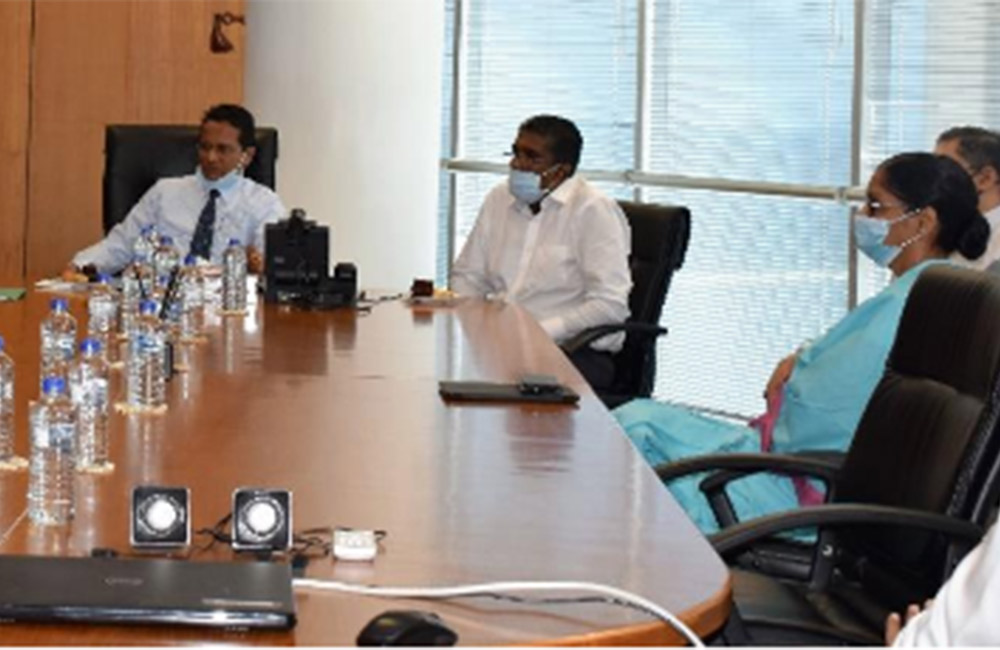
SEC continues engagement with capital market stakeholders
These interactions were held as part of a series of meetings that the Chairman commenced with various stakeholders after assuming office in January 2020. During the meetings, the Chairman briefed the delegates of the reasons that prevented the stock market from being opened during the recent curfew which was imposed by the Government in order to minimize the risk of the COVID-19 (coronavirus) spreading.
He went on to state that in order to ensure that there were no operational difficulties in similar situations in the future, he had appointed a joint committee comprising members of the SEC and Colombo Stock Exchange (CSE) to digitize all core activities of the market and that the process of such digitization was progressing smoothly and that they were hopeful that within a period of three months it would be possible to have such a system in place.

The delegation from the Chamber pointed out the need to encourage more companies to list as well as to have in place an apex committee comprising capital market stakeholders including the SEC, CSE, Central Bank of Sri Lanka, Ministry of Finance and other key policy makers including industry bodies to decide on matters related to capital market policy.
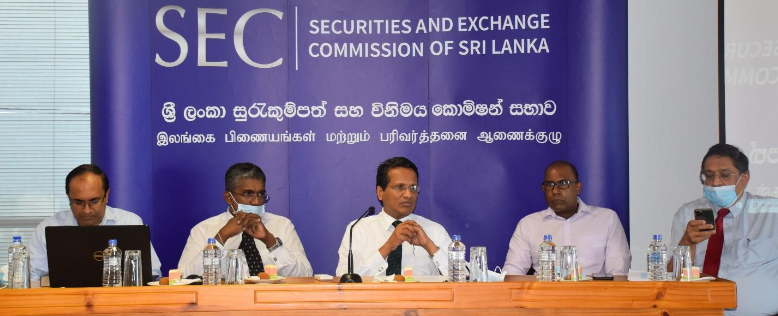
The Chairman explained on the need to have a robust regulatory system in order to ensure the integrity of the market but said that the SEC will certainly adopt a very pragmatic and practical approach in the process of regulation and called upon the delegates to point out any particular Rules or Regulations which they consider to be too rigid so that they could be looked at by the SEC.
The Chairman also informed them that the Commission was at present going through the draft SEC Act and the Demutualization Act and that its recommendations would be submitted to the Ministry of Finance before the end of next month and assured them that steps would be taken to ensure their speedy enactment. The law firms were requested to submit any recommendations they had with regard to the draft laws as well as on any other regulatory matter.
In the discussions with the stockbroker firms, the SEC Chairman explained the work that was in progress with regard to the digitization of the stock market and called upon the broker firms to support and actively participate in the ongoing initiatives of the SEC-CSE joint committee.
He also referred to the other joint committee that had been established to broad base the market and create awareness amongst the general public and called upon the stockbroker firms to partner with the SEC and CSE in these initiatives and to play a more aggressive role.
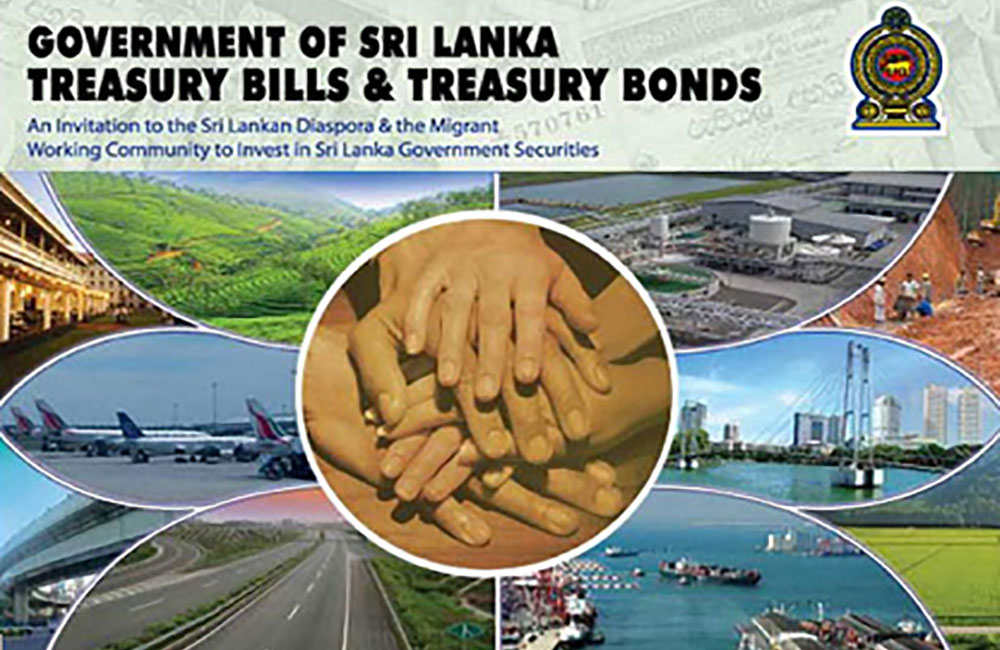
Sri Lanka's treasury bills plummet to a historic low
The government debt department sold 12-month bills at 4.86 percent, 5 basis points below last week's auction while the 6-month bills were sold at 4.69 percent 6 basis points below last week and 3-month bills were sold at 4.60 percent, down 5 basis points.
The three month and six months treasury bill rates fell below the June national inflation rate which was recorded at 6.3 percent.

Central Bank introduces new credit schemes to revive an ailing economy
Accordingly, in addition to the already disbursed Rs. 27.5 billion under the refinance scheme introduced on 27 March 2020, the Central Bank will provide funding to Licensed Commercial Banks (LCBs) at the concessionary rate of 1.00 per cent against the pledge of a broad spectrum of collateral, on the condition that LCBs in turn will on-lend to domestic businesses at 4.00 per cent, while ensuring the greatest possible distribution of this facility. This scheme along with the existing refinance Scheme will provide Rs. 150 billion in total to the businesses affected by the COVID-19 pandemic.
In addition, the construction sector enterprises will be provided with a facility to borrow from LCBs, using guarantees issued by the government equivalent to the amount due on account of contracts carried out in the past, under a new dedicated credit scheme funded by the Central Bank and made available at the aforementioned concessionary rates.
The regulator said that operating instructions on these new credit schemes will be issued in immediate due course.
Page 9 of 22